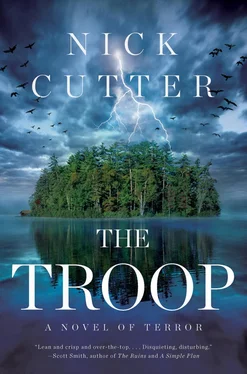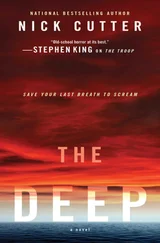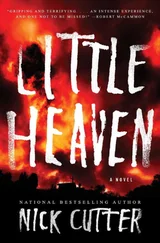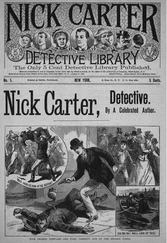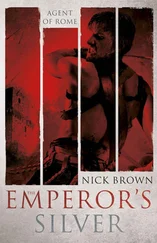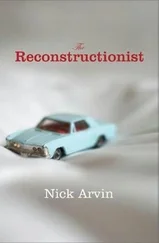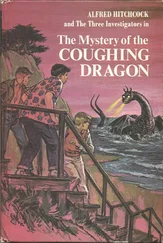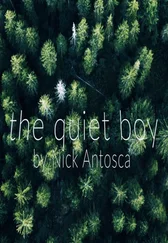Q: What was your agenda, then?
A: It was full-scale. Total neutralization. Quarantine the island and all life-forms on it. Nothing comes or goes. I had to enact some very serious measures.
Q: Such as?
A: First off, we couldn’t do anything about the kids. That was rough, no two ways about it. But we couldn’t risk it.
Q: Anything else?
A: When I said nothing comes, nothing goes , I meant it. If a seagull took off from that island and tried to fly back to land, I had a recon sniper shoot it out of the sky. I had military personnel in hazmat suits fish the corpse out of the water. After the island was cleared, I ordered four million gallons of Anotec Blue to be dumped into the surrounding waters. We call that stuff Blue Death: it kills everything, indiscriminately. Marine life, plants, plankton, protozoa. The eggheads at the CDC told me I ought to make another pass just to be sure. A few earth mother types got their knickers in a twist over that. We razed the island, too. Took four separate napalm strikes—you know how hard it is to find napalm? My marching orders were to render Falstaff Island biologically sterile: not one living thing left. Maybe there’s a few amoebas still swimming around. I’m constantly amazed at the tenacity of all life on this planet. But if anything’s still alive, it’s not for lack of trying on my part.

41
MAX DREAMEDhe was in the mortuary with his father. It’s the only chance he got to see him some days. People didn’t die that often in North Point, but they did like to hunt and fish, meaning his father had a backlog of taxidermy projects. The nature of taxidermy being what it is—framing the anatomies of dead animals before they begin to decay—timing is everything. Of course, the same held true for human anatomies.
His father worked in a white-tiled room beneath the city courthouse. The air held the sharp undertone of charcoal from the air purifier that pumped away in a corner. The shelves and fixtures were stainless steel. A huge steel slab dominated the room’s center.
Max watched his father work. He wore a long white coat—the kind pharmacists wore—and an apron of black vulcanized rubber. His dad whistled while he worked. Today it was “The Old Gray Mare.”
“The old gray mare she ain’t what she used to be, ain’t what she used to be, ain’t what she used to be…”
A woman’s body lay on the table. She had died at a very old age. A white sheet was draped over her hips but her chest was bare. Her breasts were long and tubular, as if something had pulled them out of shape. Her empty sockets were withered like two halves of a cored-out squash forgotten for days on a countertop.
His father worked with his back to Max. He picked up an ocular suction cup.
“What happens is,” he told Max in a weird singsong voice, “the eyeballs get sucked down into your head after you die. Did you know that, Maxxy?”
His father never called him Maxxy.
He thumbed the ocular cup into the woman’s socket. Tiny barbs on the cup attached to her naked eyeball. He pulled. The eyeball sucked back into its socket with the sound of a boot being pulled out of thick mud.
“All better…”
His father was whistling again. A sputtering, wheezing noise—it sounded as if it was being made with a different orifice altogether. Fear slammed into Max’s belly.
His father turned. At first Max thought his head had been submitted to some incredible pressure: it was flattened, elongated, pancaked. It projected upward and curled over on itself like a lotus petal.
“Oh Maxxy Maxxy Maxxy…”
A worm’s head jutted from his father’s lab coat. It was the greasy white of a toadstool. Noxious fluid leaked from its ribbed exterior, dribbling down to form a pumicey crust on the collar.
“Thee ole gray mare, thee ain’t what thee useth to be…”
The voice was coming from a pit in the middle of its head: round and ineffably dark like the air in a caved-in mine shaft. The pit was studded with translucent teeth that looked like glassine tusks.
“Thee ole gray mare…” his worm-father sang, swaying and burping up goo.
A pair of yellow dots glowed in the direct center of the pit, looking like the headlights of a car shining up from the bottom of the ocean. Before he woke up, Max swore he could hear another voice coming from the deepest part of the worm—the ongoing scream of his own father, trapped somewhere inside of it.
NEWTON WASshaking him.
“Max! Max! ”
He jerked up. The sunlight stabbed at his eyes. The dream drained thickly from his brainpan, departing his body through uncontrollable twitches and shivers.
“You okay? You were screaming in your sleep,” Newton said.
“Yeah. Just a bad dream.”
It was morning. He didn’t know how long he’d slept. His spine was knotted and his gut kicked over sourly.
They walked to the shore. The ships still charted their distant orbits. They were like the heat-shimmer on the highway: no matter how fast you drove, it didn’t get any closer or draw any farther away. Max wanted to scream at them, but why bother? A waste of his swiftly diminishing energy.
Newton rubbed the sleep-crust out of his eyes and wandered toward Oliver McCanty’s boat. He hauled on the motor’s rip cord. The motor went wuh-wah —the same discouraging sound it’d made when they’d tried a few days before. Newton pulled it again. Again. Again. He thought about the poster in science class—Albert Einstein, shock-haired with his tongue stuck out above the quote: The definition of insanity is doing the same thing over and over again expecting different results . Defeated, he let go of the cord, staggered back, tripped, and sat down on his ass. He cupped his hands over his eyes, lowered his head between his knees, and wept.
“Hey,” Max said. “Hey, Newt, it’s—”
But Newton was too far gone. The pent-up sobs ripped out of his throat. They were the most wretched noises Max had ever heard. He put an arm around Newton’s shoulders and felt the tension: like grasping a railroad track in advance of the onrushing locomotive. He didn’t tell Newton everything would be okay because it wasn’t—it would never be as it had been. The past had a perfection that the future could never hold.
Max just let Newton cry.
His sobs trailed off. He drew a few hitching breaths and said: “Sorry, Max. That wasn’t very…” He hiccupped twice, exhaled steadily, and said: “…wasn’t very cuh-cool of me. WWAMD?” he said, more to himself than to Max. “He sure as hell wouldn’t cry like a baby.”
“I don’t think being cool really matters now, do you?”
Newton let go of one more shuddery breath. “No. I guess not.”
Max walked to the boat, cracked the motor casing. Inside were two small holes where the spark plugs should go. He thought of his dream—the two yellow dots glowing up from the dark pit…
His mind jogged. Two revelations joined in his head like puzzle pieces slotting into place.
“He must have eaten them.”
“What?” Newton said. “Who did? Ate what?”
“The spark plugs,” Max said softly. “The man. The stranger. He swallowed the spark plugs. Ate them.”
“Ate them? Why would he do—?”
Newton thought about the man—how cadaverous he’d looked, skinny as a pipecleaner. Thought about Kent and Shelley, too. Yes, he decided, the man probably was hungry enough to eat spark plugs.
Читать дальше
